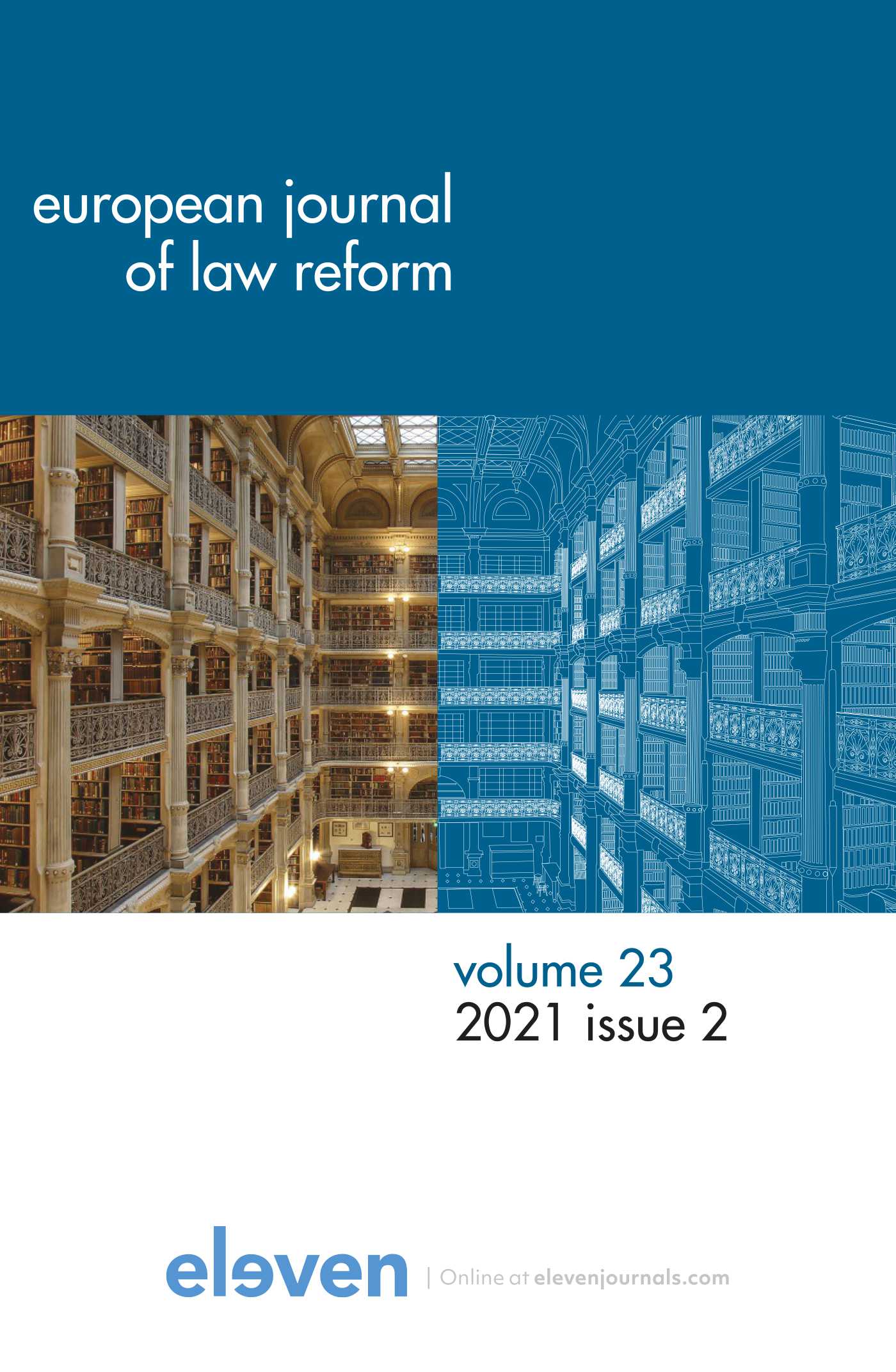|
The Argentine and the French civil codes have recently undergone substantial modifications to their contract law provisions. These novel statutes could serve as models for future B2B contract law reforms in Latin American jurisdictions and beyond, as former Argentine and French laws have done in the past. The authors offer a contribution that paves the way in that direction with a systematic comparative analysis. As a starting point, this article unveils the influence that the modern unified laws on contracts (UNIDROIT Principles on International Commercial Contracts (PICC) and United Nations Convention on Contracts for the International Sale of Goods of 1980 (CISG)) have in Argentina’s and France’s new contract law. It also highlights the most obvious similarities and differences in both sets of rules. This contribution goes beyond simple tertium comparisons; the authors analyse which of the two laws offers better, or more effective, rules to achieve the desired contract law functions in various matters. Readers are provided with the best rule or solution to address the problem in question and, as the authors hope, they should conclude that both models provide for a range of complementary solutions for modern contract law reforms. |


European Journal of Law Reform
About this journalSubscribe to the email alerts for this journal here to receive notifications when a new issue is at your disposal.
| Article |
|
| Keywords | contracts, sales, law reform, CISG, UNIDROIT Principles, Argentina, France, comparative law |
| Authors | Edgardo Muñoz and Inés Morfín Kroepfly |
| AbstractAuthor's information |
| Article |
|
| Keywords | domestication, legislative processes, functionality, efficacy |
| Authors | Tshepo Mokgothu |
| AbstractAuthor's information |
|
As the international financial framework develops it has brought with it dynamic national legislative reforms. The article establishes how the domestication of the Financial Action Task Force (FATF) Recommendations directly affects national legislative processes as the FATF mandate does not have due regard to national legislative drafting processes when setting up obligations for domestication. The article tests the FATF Recommendations against conventional legislative drafting processes and identifies that, the proposed structures created by the FAFT do not conform to traditional legislative drafting processes. Due regard to functionality and efficacy is foregone for compliance. It presents the experience of three countries which have domesticated the FATF Recommendations and proves that the speed at which compliance is required leads to entropic legislative drafting practices which affects harmonisation of national legislation. |
| Article |
|
| Keywords | ECB, Banking Supervision, Banking Supervision Centralization, Prudential Supervision, European Union, EU Law, Banking Union, Central Banking Independence, SSMR, SSMR |
| Authors | Pamela Nika |
| AbstractAuthor's information |
|
This article addresses the question of whether the European Central Bank’s (ECB’s) involvement in banking supervision is compatible with its independent status as provided by the European Union’s (EU’s) primary law, specifically with reference to the principle of separation between the ECB’s monetary policy and supervisory powers. It is found that the Single Supervisory Mechanism (SSM) Regulation provides the ECB with a set of prerequisites in pursuit of its supervisory objectives under a high level of independence. However, the article argues that the current EU regulatory framework poses risks to the overall independence of the ECB. In particular, the principle of separation, as one of the mechanisms aimed at safeguarding the ECB’s independence, is not fully achieved. In addition, the boundaries and application of macro-prudential operation of the ECB in both the SSM and European Systemic Risk Board (ESRB) remain blurry and uncertain. The article concludes by suggesting that the only way to safeguard the independence of the ECB is by carefully revising the ECB’s competencies, which may require treaty amendment. |
| Article |
|
| Keywords | Windrush generation, statelessness, right to nationality, genocide, apologetic UK Human Rights Act Preamble |
| Authors | Namitasha Goring, Beverley Beckford and Simone Bowman |
| AbstractAuthor's information |
|
This article points out that the UK Human Rights Act, 1998 does not have a clear provision guaranteeing a person’s right to a nationality. Instead, this right is buried in the European Court of Human Rights decisions of Smirnova v Russia, 2003 and Alpeyeva and Dzhalagoniya v. Russia, 2018. In these cases, the Court stretched the scope of Article 8 of the European Convention on Human Rights, 1953 on non-interference with private life by public authorities to extend to nationality. The humanitarian crisis arising from the Windrush Scandal was caused by the UK Government’s decision to destroy the Windrush Generation’s landing cards in the full knowledge that for many these slips of paper were the only evidence of their legitimate arrival in Britain between 1948 and 1971. |
| Article |
|
| Keywords | regional differentiation, regional disparities, autonomy, regionalism, subsidiarity, European Union, multilevel governance |
| Authors | Gabriella Saputelli |
| AbstractAuthor's information |
|
Regions and local governments play a very important role in the application of European law and in the implementation of European policies. The economic crisis of 2008 has accentuated territorial and social differentiation and highlighted the negative effects of globalization. This circumstance has created resentment among peripheral and marginal communities in the electoral results, but also a strong request for involvement, participation and sometimes independence from territories. These developments raise new questions about the relationship between the EU and the Regions and, more widely, about the role of subnational entities in the EU integration process, as they are the institutions nearest to citizens. |
| Book Review |
|
| Authors | M.I. Kouskouna |
| Author's information |

 Issue 4
Issue 4